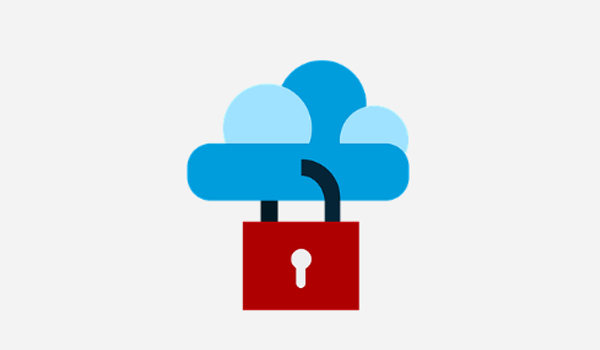Find Best API Security Software for Your Business
We help you find the right API Security Software for your business.

Browse Popular API Security Software
Up-to-date listing of API Security Software to assist you throughout your software selection and purchase journey.
What is API security?
APIs play a crucial role in modern software development, enabling the integration of many applications, services, and systems and API security software is designed to protect the integrity, confidentiality, and availability of APIs.
Best practices to enhance API security:
Here are some best practices to enhance API security:
- Authentication: Implement strong and secure authentication methods, such as OAuth or API keys.
- HTTPS: Use HTTPS (SSL/TLS) to encrypt data in transit and ensure secure communication.
- Input Validation: Validate and sanitize input data to prevent injection attacks and other security vulnerabilities.
- Authorization: Enforce proper access controls and authorization mechanisms to restrict data access.
- Token Management: Use short-lived access tokens and refresh tokens for secure authorization.
- Rate Limiting: Implement rate limiting to protect against abuse and potential denial-of-service attacks.
- Security Headers: Leverage security headers, such as Content Security Policy (CSP) and Strict-Transport-Security (HSTS).
- Logging and Monitoring: Maintain detailed logs for auditing and monitoring, and regularly review them for security insights.
- API Gateway: Consider using an API gateway for centralized security control and traffic management.
- Security Testing: Conduct regular security assessments, including penetration testing and code reviews.
- Update Dependencies: Keep API frameworks, libraries, and dependencies up-to-date to patch known vulnerabilities.
- Data Privacy Compliance: Adhere to data protection regulations and implement measures to secure sensitive data.
- Educate Developers: Train developers on secure coding practices and provide guidelines for building secure APIs.
- File Upload Security: If applicable, implement secure practices for handling file uploads, including validation and storage.
- Continuous Monitoring: Establish continuous monitoring to promptly detect and respond to security incidents.
OWASP API Top 10 List:
The OWASP API Top 10 is a list of the ten most critical security risks associated with APIs and it is curated by the Open Web Application Security Project (OWASP), a nonprofit organization focused on improving the security of software. The API Top 10 serves as a guideline for developers, architects, and security professionals to understand and address common vulnerabilities and security threats in API environments.
- Injection: Guard against malicious code injection by validating and sanitizing input data.
- Broken Authentication: Ensure robust authentication mechanisms to prevent unauthorized access to APIs.
- Sensitive Data Exposure: Safeguard sensitive information by encrypting and securing data transmissions.
- XML External Entities (XXE): Mitigate XXE attacks by validating and restricting XML input.
- Broken Access Control: Implement proper access controls to restrict unauthorized access to APIs and data.
- Security Misconfigurations: Regularly audit and update configurations to eliminate vulnerabilities.
- Cross-Site Scripting (XSS): Protect against XSS attacks by validating and escaping user input.
- Insecure Deserialization: Validate and sanitize serialized data to prevent exploitation.
- Using Components with Known Vulnerabilities: Regularly update and patch components to address known vulnerabilities.
- Insufficient Logging and Monitoring: Enhance logging and monitoring to detect and respond to security incidents promptly.
Difference between API security and general application security:
API security and general application security share common principles, but they differ in focus and implementation due to the specific nature of APIs. Here are key distinctions between API security and general application security:
- Scope of Protection
- API Security: Focuses on securing interactions between different software applications or services.
- General Application Security: Encompasses the overall security of an entire software application, covering various layers.
- Attack Vectors
- API Security: Addresses API-specific vulnerabilities like injection, broken authentication, and IDOR.
- General Application Security: Addresses a broader range of attack vectors such as SQL injection, XSS, CSRF, and security misconfigurations.
- Authentication & Authorization
- API Security: Emphasizes secure authentication and proper authorization mechanisms for API access.
- General Application Security: Encompasses user authentication and authorization within the application.
- Data Protection
- API Security: Involves securing data transmitted between systems (e.g., using encryption like HTTPS).
- General Application Security: Ensures security of data at rest, in transit, and during processing within the application.
- Integration Considerations
- API Security: Addresses challenges of securing interactions in microservices architectures.
- General Application Security: Focuses on securing monolithic applications and their internal components.
- Dependency Management
- API Security: Involves securing dependencies and third-party APIs that the API relies on.
- General Application Security: Extends to managing dependencies (libraries, frameworks) within the application's codebase.
- Developer Focus
- API Security: Developers focus on securing exposed API endpoints, managing authentication, and access controls.
- General Application Security: Developers focus on securing the application's user interface, business logic, and database interactions.
Importance of API security software:
API security software is necessary for following reasons:
Vulnerability Scanning and Testing: API security softwares often include tools for scanning and testing APIs for vulnerabilities. Regular security assessments help identify and address potential weaknesses in the API infrastructure.
Securing Third-Party Integrations: Many businesses use third-party APIs to enhance their services. API security software helps ensure that integrations with external APIs are secure, protecting against potential vulnerabilities that could be exploited by malicious actors.
Protection Against Attacks: APIs are susceptible to various security threats, including injection attacks, cross-site scripting (XSS), and denial-of-service (DoS) attacks. API security tools employ techniques like input validation, threat detection, and rate limiting to mitigate these risks.
Data Protection: APIs often handle sensitive data, and securing this data is paramount. API security software implements measures such as encryption to protect data both in transit and at rest, ensuring that sensitive information is not compromised.
Authentication and Authorization: API security software enforce authentication and authorization mechanisms to ensure that only authorized users and systems can access and interact with APIs. This helps prevent unauthorized access and potential misuse of APIs.
API security software is crucial for businesses to safeguard their digital assets, protect sensitive data, and maintain the integrity of their systems.









